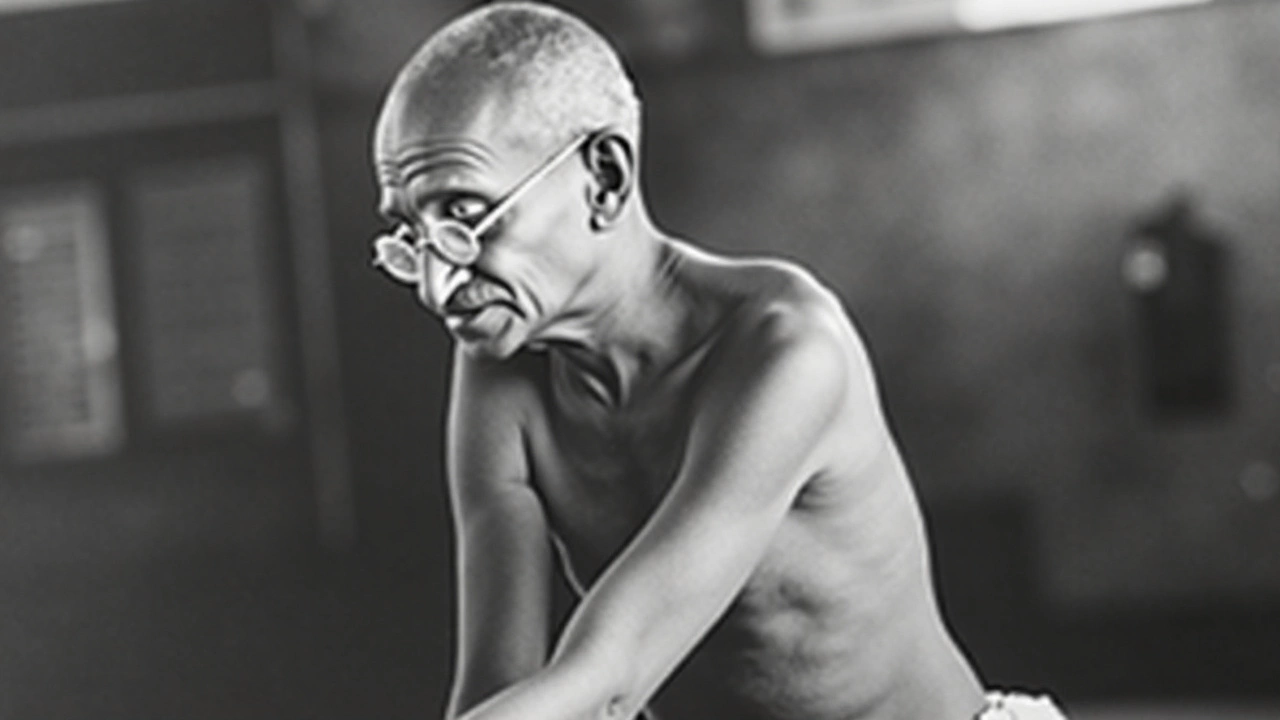Mahatma Gandhi: The Man Who Changed India Forever
When you hear the name Mahatma Gandhi, you probably picture a thin man in a white dhoti, leading peaceful protests. But there’s a lot more to the story than that iconic image. Born on October 2, 1869, in Porbandar, Gujarat, Gandhi spent his early years learning languages, studying law in London and even trying his luck as a lawyer in South Africa. It was there he first tried out non‑violent resistance, a tactic that would later become his trademark.
Why Gandhi’s Non‑Violent Approach Still Resonates
Gandhi’s idea of ahimsa – non‑violence – wasn’t just a political tool; it was a way of life. He believed that if you fight injustice with love, you win hearts, not just votes. That’s why his Salt March in 1930, a 240‑mile walk to the Arabian Sea, captured the nation’s attention. Millions joined, not because they wanted to break a law, but because they felt the moral weight of British oppression.
Even today, activists around the world borrow his methods. From the Civil Rights movement in the US to climate protests in Europe, Gandhi’s playbook shows that peaceful protest can move mountains. The key takeaway? You don’t need weapons; you need conviction and a clear, simple message.
Key Moments That Shaped Modern India
Gandhi’s influence isn’t limited to a single event. The Quit India Movement of 1942 called for an end to British rule, sparking widespread civil disobedience. Though it led to his imprisonment, the movement showed that ordinary people could challenge an empire. His fasting campaigns also made headlines, using personal sacrifice to highlight social issues like untouchability and the need for Hindu‑Muslim unity.
When India finally got independence in 1947, Gandhi’s vision of a united, secular nation faced immediate challenges. Partition split the country, and Gandhi’s own life ended in tragedy when he was assassinated on January 30, 1948. Yet his dreams of a free, equitable India still inspire policies and debates, from land reforms to gender equality.
So why does Mahatma Gandhi matter to you right now? If you’re scrolling through news about climate strikes, labor rights, or political protests, you’ll often see his name pop up. His strategies teach us that change starts with small, consistent actions – a march here, a boycott there, a conversation about fairness everywhere.
Curious about his words? Some of his most famous quotes are short but powerful: “Be the change you wish to see in the world,” “An eye for an eye makes the whole world blind,” and “The best way to find yourself is to lose yourself in the service of others.” Each line reminds us that personal responsibility is at the heart of societal transformation.
In today’s fast‑paced digital age, Gandhi’s teachings might feel old‑school, but they’re surprisingly relevant. Think about it: social media amplifies voices, but it also spreads misinformation. Gandhi’s emphasis on truth (Satya) and transparency can guide how we share and verify information.
Whether you’re a student writing a paper, an activist planning a campaign, or just someone who likes history, understanding Gandhi’s life gives you a toolbox for tackling injustice. His story shows that perseverance, humility, and a clear moral compass can outlast any empire.
So the next time you hear about a protest, a boycott, or a call for peace, ask yourself: how would Mahatma Gandhi approach this? You might find a fresh perspective that turns a simple idea into a powerful movement.

Martyrs' Day, observed annually on January 30, commemorates Mahatma Gandhi's assassination in 1948 by Nathuram Godse. Known for his non-violent struggle for India's independence, Gandhi's legacy extends beyond politics. This day honors those who died for freedom, celebrating Gandhi's ideals of truth and unity. Though nominated five times for the Nobel Peace Prize, he never won.
